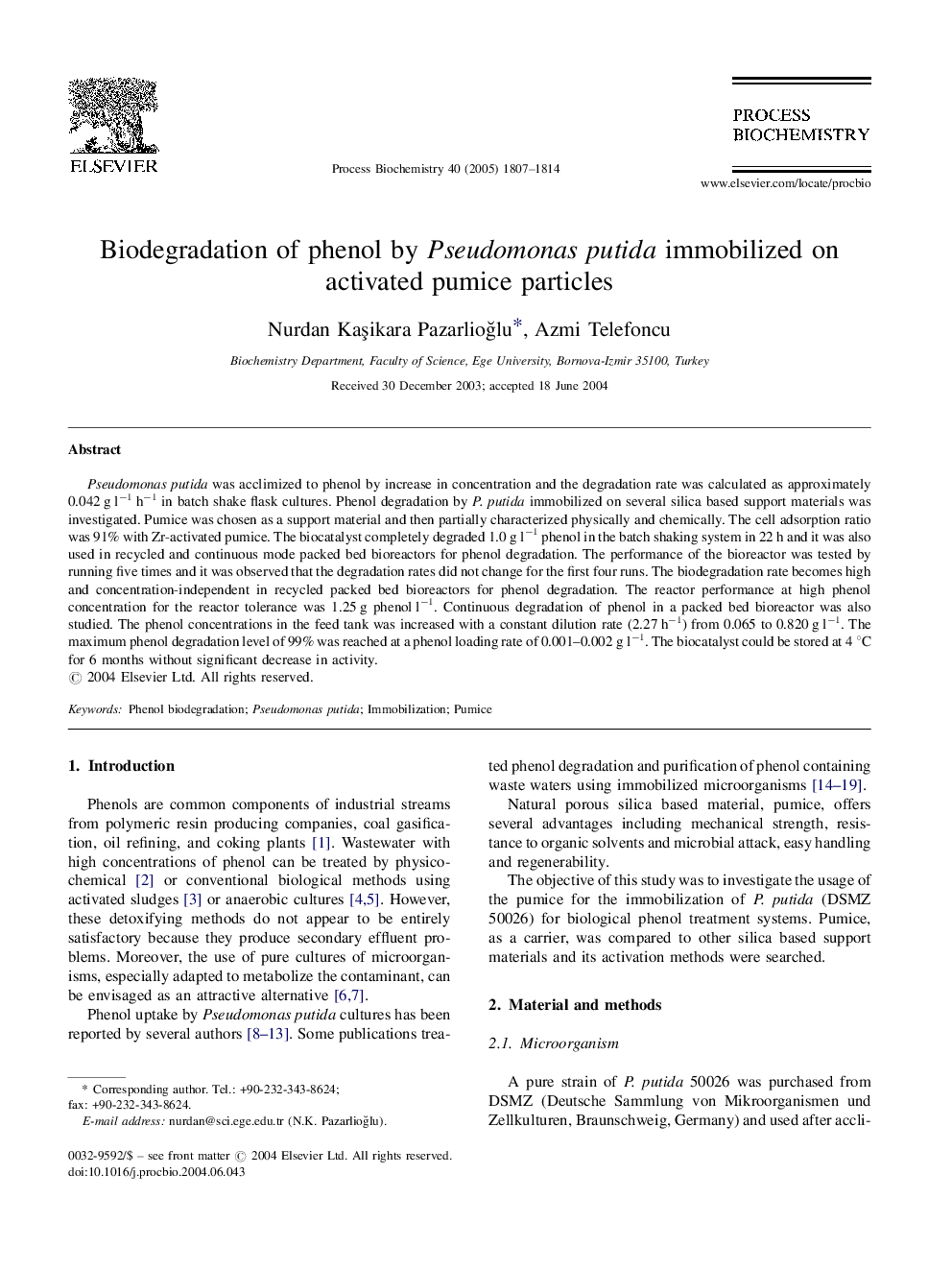| Article ID | Journal | Published Year | Pages | File Type |
|---|---|---|---|---|
| 10236414 | Process Biochemistry | 2005 | 8 Pages |
Abstract
Pseudomonas putida was acclimized to phenol by increase in concentration and the degradation rate was calculated as approximately 0.042 g lâ1 hâ1 in batch shake flask cultures. Phenol degradation by P. putida immobilized on several silica based support materials was investigated. Pumice was chosen as a support material and then partially characterized physically and chemically. The cell adsorption ratio was 91% with Zr-activated pumice. The biocatalyst completely degraded 1.0 g lâ1 phenol in the batch shaking system in 22 h and it was also used in recycled and continuous mode packed bed bioreactors for phenol degradation. The performance of the bioreactor was tested by running five times and it was observed that the degradation rates did not change for the first four runs. The biodegradation rate becomes high and concentration-independent in recycled packed bed bioreactors for phenol degradation. The reactor performance at high phenol concentration for the reactor tolerance was 1.25 g phenol lâ1. Continuous degradation of phenol in a packed bed bioreactor was also studied. The phenol concentrations in the feed tank was increased with a constant dilution rate (2.27 hâ1) from 0.065 to 0.820 g lâ1. The maximum phenol degradation level of 99% was reached at a phenol loading rate of 0.001-0.002 g lâ1. The biocatalyst could be stored at 4 °C for 6 months without significant decrease in activity.
Related Topics
Physical Sciences and Engineering
Chemical Engineering
Bioengineering
Authors
Nurdan KaÅikara PazarlioÄlu, Azmi Telefoncu,
